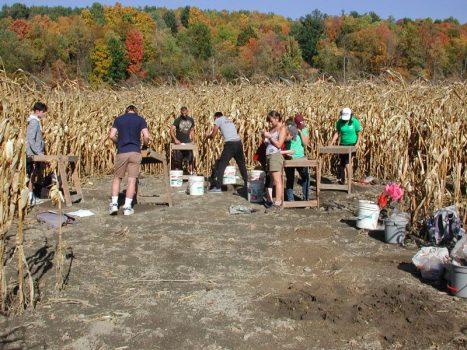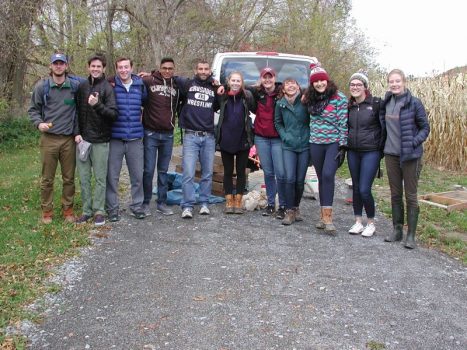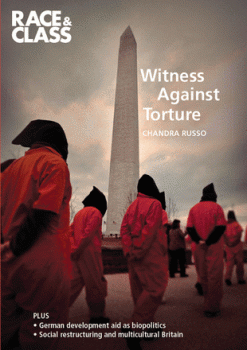This post submitted by SOAN Prof Janel Benson
The SOAN Department is pleased to announce that 10 SOAN students will be conducting independent and faculty-supported research this summer.
Hannah Post, Emily Kahn, Audrey Swift, and Cameron Pauly will be conducting research with Dr. Kristin De Lucia and her colleague Enrique Rodríguez-Alegría (University of Texas-Austin) on their NSF supported archaeological project in Xaltocan, Mexico. Just outside of Mexico City, Xaltocan was a major regional center prior to the rise of the Aztec Empire and was conquered by Cortes upon his arrival into the Basin of Mexico. This summer they will be excavating colonial and Aztec contexts, including the courtyard of Xaltocan’s 16th-century church and an Aztec house. Students will gain training and experience in archaeological excavation, survey, and laboratory analysis of artifacts.
Farrin Saba ’19 and Hailey Biscow ’17 will be working with Dr. Santiago Juarez on the Noh K’uh Archaeological project in Chiapas, Mexico. Near the Southern border of Mexico, Noh K’uh is an ancient Maya city that is located within one of the last remaining rainforests known as the Selva Lacandona. This summer they will be charting new archaeological the remains of a city that dates as far back as 800 B.C., during a period when the Maya were first constructing cities. Students will gain training and experience in archaeological survey, and laboratory analysis of artifacts.
Vanessa Escobar and Jolene Patrina will be working with Dr. Elana Shever on her project examining how people in the United States today are using dinosaurs to think about what it means to be human. The students will be helping Professor Shever process and analyze the interview and participant-observation data she has been collecting over the last few years.
Hunter Filer ’17 and Tim Englehart ’17 have received funding to conduct independent research this summer. Hunter Filer ’17 received funding from the Lampert Summer Fellowship to travel to Denmark to investigate the integration of immigrant children within the Danish educational system. Tim Englehart ’17 received funding from the Division of Social Sciences to examine the role of selective colleges in producing graduates committed to altruistic good. Professor Janel Benson will serve as the faculty sponsor for both projects.





